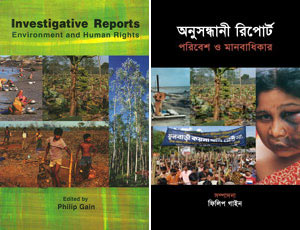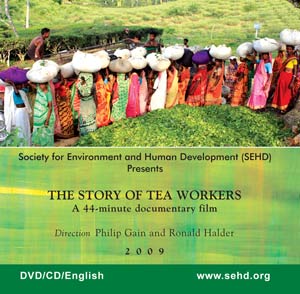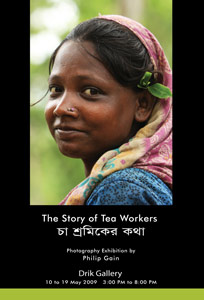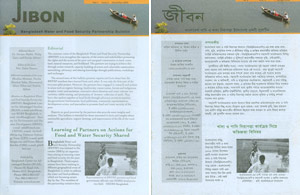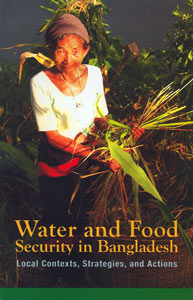
Water and Food Security in Bangladesh: Local Contexts, Strategies and Actions
This publication introduces the coalition, Bangladesh Water and Food Security Partnership (BWFSP) and its activities. The coalition is comprised of six Bangladeshi non-government organizations that all partner with ICCO, a Dutch development agency. Each of the BWFSP members has its unique work area, but the issues they address are inter-related.
Six organizations and their issues as part of the partnership programs are:
BCAS – promoting the role of the poor women in coping with the drinking water crisis in drought prone villages in its work area in Rajshahi District.
RDRS – introducing pariza rice contributing to food security.
UST – contributing to food security through organic farming that reinforces the significance of saving nature by avoiding chemical fertilizers and pesticides.
UBINIG – focusing on biodiversity-based ecological agriculture for water and food sovereignty of the people.
SEHD – exposing the underlying factors for the destruction of the Modhupur sal forest, promoting the rights of the indigenous peoples to land and forests, and engaging the indigenous communities in ecological farming.
GBK – promoting and engaging in simple cost effective economic activity through rabbit culture that helps the poor by increasing their income
The write-ups are telling of a commitment that these organizations make towards securing access of the poor, marginal and indigenous communities to food and water. This is a difficult commitment to fulfil in Bangladesh, a country of around 164 million people with approximately 40% poor and 20 extremely poor. These realities make it obvious that development actors, government, donor communities and the common man must work hand in hand.
Publication Details
Published: 2010
Language: English
Paperback: 66 pages
Editor: Philip Gain
Price: Tk.100 / US$3
Introducing the Bangladesh Water and Food Security Partnership coalition, its members and activities. 2010, English, 66 pages, Paperback – Tk.100 / US$3

